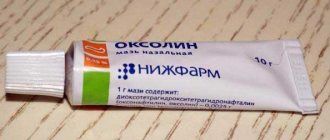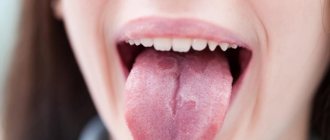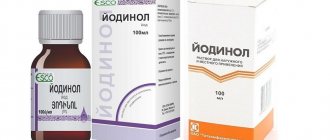Every person must monitor their oral health very carefully, otherwise serious problems may arise not only with teeth and gums, but also with other organs of our body. If you begin to worry about your gums and their condition, then you need to contact a periodontist in a timely manner. What kind of doctor is this and what diseases does he deal with? These are questions the answers to which will be discussed in this article.
Why can’t stomatitis be treated without the participation of a doctor?
Of course, the use of medicinal ointments and preparations, special lotions and rinses for the oral cavity does not require hospital conditions and strict supervision by doctors. Indeed, you can heal yourself.
However, your decisions and actions should always be in consultation with your healthcare provider. Do not take any action or purchase medications yourself.
One careless mistake can lead to a complicated course of the disease and an increase in the inflammatory process!
Who is a periodontist?
A periodontist is a highly qualified specialist involved in the diagnosis and treatment of periodontal diseases - the soft periodontal tissues that provide teeth with reliable fixation in the jaw.
The periodontist, as a highly specialized doctor, must have in-depth knowledge of the methods of treating various types of soft tissue diseases. In his practice, he uses antibiotics, special dental equipment, resuscitation agents and drugs to treat gums.
What can cause stomatitis?
One of the main reasons is a decrease in immune functions. Once the immune system weakens, it affects other systems of the body.
Ulcers with stomatitis are a common signal of problems with the immune system. You may need help from different specialists.
Sometimes stomatitis develops against the background of diabetes mellitus and some other disorders in the endocrine system. Often, ulcers appear after accidental mechanical damage to the mucous membrane (for example, due to careless handling of a toothbrush).
Another possible reason is intoxication of the body associated with poisoning with metal salts. In this case, urgent medical attention is required due to the threat to the patient’s health and life!
When do you need to urgently visit a periodontist?
All of the above signs of pathologies are a good reason to make an appointment with a dentist. In these cases, self-medication is strictly prohibited, since treatment should be aimed at eliminating not the signs, but the causes of the disease. And only a professional specialist can identify them and prescribe effective therapy.
The main signs of the need for examination by a periodontist include:
- bleeding gums;
- the first signals of the onset of the inflammatory process;
- painful sensations in the gums;
- release of fluid when pressing on the gums;
- noticeable loosening of teeth;
- the appearance of periodontal pockets in the periodontal areas;
- peeling of soft tissues and their subsidence;
- exposure of the dental neck;
- putrid taste and bad breath that does not go away even after brushing or rinsing;
- suppuration;
- change in the angle of inclination of the teeth.
All of the above signs indicate dangerous changes that require immediate medical attention.
Can stomatitis be a side effect after taking medications?
Rare, but still acceptable causes of stomatitis also include taking certain medications.
Some antibiotics, diuretics, and oral contraceptives affect the condition of the oral mucosa, causing increased dryness and other complications. If your mouth becomes very dry, cracks and ulcers may occur.
Where to take your child
Treatment of stomatitis in children is carried out by a pediatric dentist. In addition to the dentist, children are examined by a pediatrician. The aphthous type of disease in toddlers is severe. This disease requires constant monitoring by a doctor and adjustment of medications. The main thing is that adequate therapy is prescribed and the dose of medication is selected correctly. The age of the patient must be taken into account. If recovery is delayed, the little patient is referred to the following specialists:
- An immunologist to determine the state of the body’s defenses;
- To a hematologist, especially when aphthae appear, as they can occur when hematopoiesis is impaired;
- An infectious disease specialist who can identify the source of infection;
Remember that herpes is a dangerous manifestation. Children's behavior changes dramatically. They become anxious, whiny, restless, and may refuse their favorite food. Such symptoms cannot be ignored. The sooner you see a doctor, the faster your recovery will come.
What remedies are recommended for the treatment of stomatitis?
- Mouth rinses . You can prepare a solution based on boric acid (one teaspoon per 150 ml of water). Another option is a solution with hydrogen peroxide (add one teaspoon to a glass half filled with water).
- Oils for medicinal lotions . Use sea buckthorn oil and propolis tincture. Soak a sterile cotton pad (or gauze) with the product and apply to the ulcer for a few minutes.
- The use of antiseptics to treat ulcers and mucous membranes. Be sure to consult your doctor when choosing a product.
Who should adults contact?
The disease is treated by a dentist who specializes in problems of the lining of the mouth. After the examination, the doctor will refer the patient for examination to determine the exact cause of the anomaly. If necessary, the oral cavity is cleaned. Besides:
- If the patient suffers from allergies, you should contact an allergist. Irritating food additives provoke the development of the disease.
- Consultation with an immunologist is required when external irritants affect systems and organs. In this case, the body's defenses are activated. But when they are weakened, relapses often occur.
- You may need a referral to an endocrinologist for hormonal imbalances.
Therapy is prescribed according to indications. Complex treatment measures may be required. It is important to eliminate provoking factors. A gentle diet and vitamin supplements are prescribed. Mucous tissues should be irrigated with antiseptics and lubricated with antiviral or antifungal agents.
What should you not do if you have stomatitis?
While you are treating stomatitis, never eat too hot food. Mouth rinse solutions should also be at a moderate warm temperature.
Temporarily avoid ice cream and cold drinks, do not eat spicy, sour, overly salty or sweet foods to avoid increased irritation.
Do not try to remove the ulcer yourself. If necessary, such manipulation will be performed by a doctor on an outpatient basis. If you open an ulcer yourself, you may accidentally introduce an infection into the wound.
Advice from periodontists
In order to preserve the health of your gums, you need to use dental services twice a year and scrupulously follow the rules of hygiene.
Advice from doctors on oral care:
- Hygiene procedures must be carried out daily, morning and evening, without any exceptions. This is the main guarantee of periodontal health.
- During the day, after each meal, rinse your mouth; if you don’t have a special mouthwash on hand, you can use plain water. Any remaining food particles between the teeth must be removed using dental floss.
- The toothbrush should be chosen correctly; it should have a rounded end and medium-hard bristles, which will prevent damage to the gums during brushing.
- The toothbrush should be changed quite often, at least once every 4 months, otherwise it becomes an ideal place for the accumulation of dangerous bacteria.
- The choice of toothpaste should also be taken seriously, since it is its composition that determines how effective the cleansing of all components of the oral cavity will be. There are special pastes containing useful components and additives that will help eliminate problems with soft tissues.
Symptoms of aphthous stomatitis
Usually, 1–2 days before the appearance of aphthae, areas of the mucous membrane with increased sensitivity are detected, and a burning sensation may occur. The aphthae themselves are round, have clear boundaries, and are covered with a gray or yellowish coating. Their size, as a rule, does not exceed 1 cm, and the mucous membranes around them turn red.
Such areas of erosion heal within up to 2 weeks without scarring. But in 1 case out of 10, the diameter of the ulcers is more than 1 cm, they affect deeper areas of tissue, and the borders of the pathological area may look raised. Healing in this case takes up to 6 weeks, after which a scar forms.
Aphthous stomatitis is characterized by damage to the mucous membranes of the cheeks, the inside of the lips, the soft palate, tonsils, and the lateral surfaces of the tongue. This is due to the lack of keratinization of the epithelium in these areas. Much less often, aphthae appear on the hard palate, back of the tongue, and gums.
Therapeutic measures
Treatment of oral diseases requires an integrated approach. It is important not only to treat the pathology, but also to prevent its recurrence in the future. This is achieved through timely professional oral hygiene, as well as maintaining an appropriate level of hygiene at home.
Treatment of diseases of the oral mucosa involves the prescription of certain pharmaceutical agents with antibacterial, antiseptic and wound-healing effects. For example, for stomatitis, the use of Stomatidine has a good effect. Drugs for the treatment of the oral cavity are selected exclusively by the attending physician.
If caries is present, a filling is indicated. If pulpitis occurs, then the carious tissue is removed, then the nerves are removed and the pulp chamber is cleaned. The cleaned tooth roots are treated with antiseptics and filled. Next, a filling or a crown made of metal ceramics or metal-free ceramics can be installed.
How to avoid getting stomatitis again
To avoid getting stomatitis again, you need to follow 3 rules:
- Maintain hygiene.
- Treat teeth, check and change orthopedic structures in a timely manner.
- Monitor your general health.
The first rule for preventing recurrent stomatitis is hygiene. It is best to have your teeth professionally cleaned by a dental hygienist after the symptoms of the disease have disappeared. A specialist will use ultrasonic equipment to remove tartar and old plaque and advise on further dental care tactics in each specific case. The professional cleaning procedure should be carried out 2 times a year to remove accumulated dirt that regular cleaning cannot remove. This is especially true for patients with braces or dentures - the presence of foreign structures in the mouth requires regular professional cleaning.
It is necessary to treat teeth so that there are no putrefactive processes in the mouth, and there are as few pathogenic bacteria in the microflora as possible. And if the cause of stomatitis or contributing factors were disturbances in the functioning of the body, then you need to closely monitor your health and maintain your immunity.
Kinds
There are several types of pathology depending on the causes and depth of tissue damage. Each of them has its own characteristics. Here is the classification:
- viral - infection by herpes viruses;
- bacterial - caused by staphylococci and streptococci;
- fungal ─ develops with weak immunity and after antibiotic therapy;
- allergic ─ reaction to plant pollen, food, animal hair and other irritants;
- radiation ─ a consequence of radioactive radiation.











